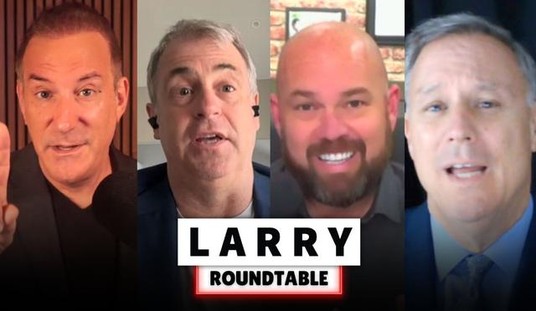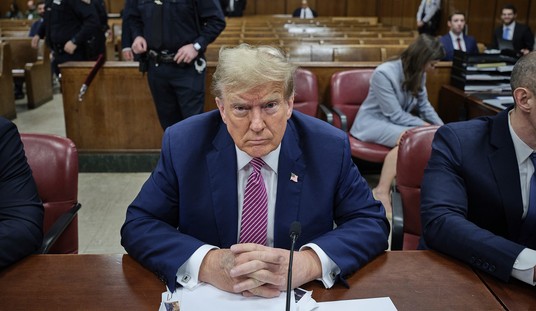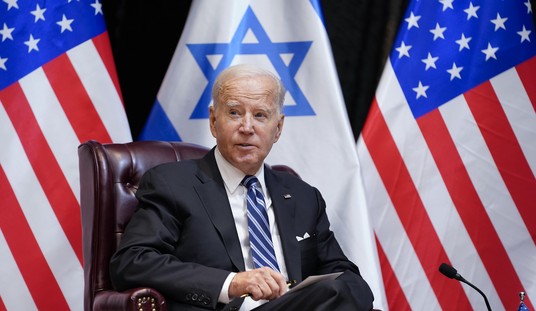In all of the many film documentaries, news stories and other media programs about the life and death of President John F. Kennedy, few if any mention one of his major legacies: cutting taxes to, in his words, "get America moving again."
Democrats and President Obama, for whom "tax cuts" is an "expletive deleted", despise the idea and never talk about JFK's across-the-board, income tax rate reductions which led to a decade- long burst of economic growth.
What Kennedy proposed and got through a Democratic Congress deserves our attention now more than ever.
With the Obama economy still "stuck in perpetual slow motion," according to the Washington Post, and millions of long term unemployed and underemployed Americans unable to find full-time work, it is hard to argue against a pro-growth, pro-job policy that works.
And Kennedy's tax cuts were enormously successful, boosting economic growth, creating a wave of new jobs, and -- despite forecasts of massive deficits -- led to a sharp increase in tax revenues and a budget surplus.
"By 1966 -- the year that might have been the fifth of his presidency had he lived -- Kennedy would have been presiding over an economy growing at a rate of 6.6 percent and an unemployment rate falling to just 3.8 percent," writes Marilyn Geewax, National Public Radio's senior business editor, in "JFK's Lasting Economic Legacy."
Compare that to Obama's feeble economic record as he nears the sixth year of his presidency, with the economy growing by just over 2 percent, and unemployment at 7.3 percent.
Recommended
Instead of ignoring the Kennedy tax cuts, Obama would do well to go back and read JFK's arguments in behalf of his tax reforms -- which are as relevant today as they were in the 1960s. Here's what he said:
"Our true choice is not between tax reduction, on the one hand, and the avoidance of large federal deficits on the other. It is increasingly clear that no matter what party is in power, so long as our national security needs keep rising, an economy hampered by restrictive tax rates will never produce enough revenues to balance our budget -- just as it will never produce enough jobs or enough profits.
"Surely the lesson of the last decade is that budget deficits are not caused by wild-eyed spenders but by slow economic growth and periodic recessions, and any new recession would break all deficit records," he said.
I would disagree with Kennedy that deficits aren't also the result of excessive spending. Still, no one can argue with the fact that robust revenue growth from a strong, full employment economy, and slower spending growth, would eliminate our deficits. We need both.
Kennedy added that "it is a paradoxical truth that tax rates are too high today and tax revenues are too low and the soundest way to raise the revenues in the long run is to cut the rates now." Amen to that.
Obama categorically rejects all this. He clings, instead, to his party's class warfare religion which preaches raising income taxes on wealthier people, including businesses, investors and venture capital risk-takers who are the job-creators of our economy.
He talks endlessly about a "winner-take-all economy where a few do better while everyone else just treads water." And calls for more of the same snake oil, spending remedies that's he tried without success.
Instead of embracing growth policies that have worked in the recent past, he reached back to the era of the Great Depression and blew more than $1 trillion on FDR-style, public works, make-work spending.
He said it would "jump start" our economy and create millions of permanent, new jobs. It failed and left $6 trillion in added debt and a slow growth economy in its wake.
"In contrast, Kennedy enjoyed a nearly miraculous economic turnaround. At the time of his death in November 1963, an employment boom was beginning," Geewax writes. Stocks soared, tax revenues climbed and the deficits fell.
Flash forward to the 1980s when Ronald Reagan won the presidency as the economy was plunging into a severe recession that in some respects was worse than the one Obama faced.
He similarly proposed cutting tax rates to boost sagging economic growth and bring down an unemployment rate that would rise to nearly 11 percent. In fact, he said he got the idea -- aggressively promoted by tax cut crusader Jack Kemp -- from Kennedy's tax cuts.
By 1983, the Reagan economy grew at a spectacular 4.5 percent rate that would soar to more than 7 percent in the fourth quarter and to 8.5 percent by 1984.
Unemployment plunged as job creation went through the roof. In one month, the economy created more than one million jobs (September, 1983) and 3.5 million jobs for the year -- job growth the Obama White House can only dream about.
But the Kennedy tax cuts also had an influence on yet another, more recent president, Bill Clinton, who had met President Kennedy when a young man. He raised taxes in his first year, only to see a modest, so-so economy in his first term.
Then, in 1997, the Republican-led Congress sent him a tax- relief, deficit-reduction bill that, after some resistance, he signed. It lowered the top capital gains tax rate from 28 percent to 20 percent, among other tax cut incentives, and the economy took off.
What caused this expansion? By 1998, venture capital investment exploded to $28 billion, up from $8 billion three years earlier -- launching a job-producing, high-tech boom.
Yes, all of these tax cuts benefited the rich, but they also opened up employment and investment opportunities for middle and lower income Americans, too.
When Kennedy's far left-wing critics criticized his tax cut plan during his 1960 campaign, saying it would benefit the wealthy, he would reply, "a rising tide lifts all boats."
Obama wants an economy that benefits the middle class but not anyone above that income level. It is a delusional and deeply dysfunctional school of economic belief that is worshiped by today's far-left Democratic Party and Obama is its high priest.
Today, any Democrat in good standing who dares to embrace and promote Kennedy's pro-growth, pro-job tax cuts risks being excommunicated by his party.

























Join the conversation as a VIP Member